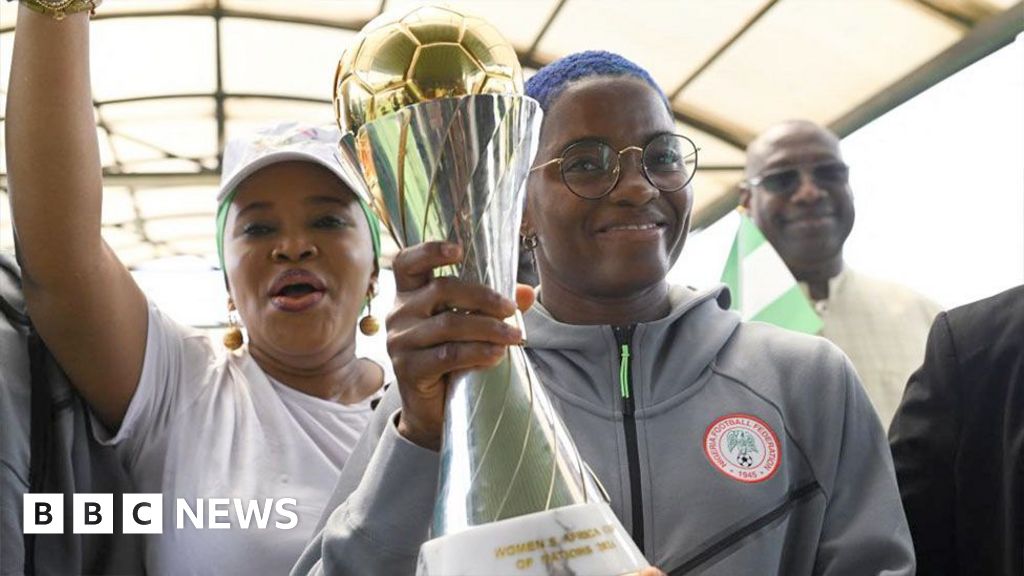中国向父母提供1,500以鼓励生育。
生成中...【新闻麻辣烫】
中国开启"发钱催生"模式:三胎家庭每年可领3600元奶粉钱,连领三年合计10800元!内蒙古呼和浩特豪掷10万"三胎大礼包",沈阳每月发放500元"尿布补贴"。不过算算账——在中国养大一个孩子平均要花53万人民币,这点补贴怕是连补习班学费的零头都不够。统计局最新数据显示,2024年中国新生儿954万,虽然比2023年多了几个"小目标",但总人口还是"三连降"。网友吐槽:这哪是生育补贴,分明是"人口焦虑安慰剂"啊!(OS:建议改名叫"奶粉券",毕竟养娃的花销够买一卡车奶粉了!)
---
**China offers parents $1,500 in bid to boost births**
**中国推出万元生育补贴应对人口危机**
Several provinces across China have piloted some form of payouts to encourage people to have more children as the world's second largest economy faces a looming demographic crisis.
面对迫近的人口危机,中国多省试点发放生育补贴鼓励生育。
---
**The handouts will help around 20 million families with the cost of raising children, according to state media.**
**官方称补贴将惠及2000万家庭**
The country's birth rate has been falling, even after the ruling Communist Party abolished its controversial one-child policy almost a decade ago.
即便废除独生子女政策已近十年,中国生育率仍持续走低。
---
**Parents in China are being offered 3,600 yuan (£375; $500) a year for each of their children under the age of three in the government's first nationwide subsidy aimed at boosting birth rates.**
**三岁以下婴幼儿家庭每年可获3600元补贴**
The scheme, which was announced on Monday, will offer parents a total of up to 10,800 yuan per child.
该政策周一公布,每孩累计可获10800元。
---
**The policy will be applied retroactively from the start of this year, Beijing's state broadcaster CCTV said.**
**央视称补贴追溯至今年元旦生效**
Families with children born between 2022 and 2024 can also apply for partial subsidies.
2022至2024年出生婴幼儿家庭可申领差额补贴。
---
**The move follows efforts by local governments to boost birth rates in China.**
**此前多地已推出生育激励措施**
In March, Hohhot - a city in the northern region of China - started offering residents up to 100,000 yuan per baby for couples with at least three children.
三月起呼和浩特对三胎家庭每孩最高奖励10万元。
---
**Shenyang, a city northeast of Beijing, offers 500 yuan a month to local families with a third child under three.**
**沈阳三胎家庭每月可获500元补贴**
Last week, Beijing also urged local governments to draft plans for implementing free preschool education.
上周国务院要求各地制定学前教育免费方案。
---
**The country is among the world's most expensive places to have children, in relative terms, according to a study by China-based YuWa Population Research Institute.**
**育娲研究显示中国养育成本全球第二高**
Raising a child to the age of 17 in China costs an average of $75,700, the study found.
研究显示中国养大一个孩子平均需53万元人民币。
---
**In January, official figures showed that China's population fell for a third year in a row in 2024.**
**2024年中国人口连续第三年负增长**
China recorded 9.54 million babies born in 2024, according to the National Bureau of Statistics.
统计局数据显示2024年新生儿954万。
---
**That marked a slight increase from the year before but the country's overall population continued to shrink.**
**较上年微增但总人口持续萎缩**
The country's 1.4 billion population is also ageing fast, adding to Beijing's demographic concerns.
14亿人口加速老龄化加剧人口结构隐忧。










